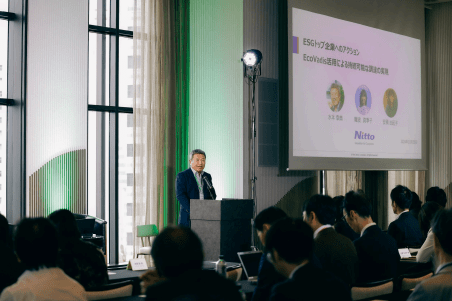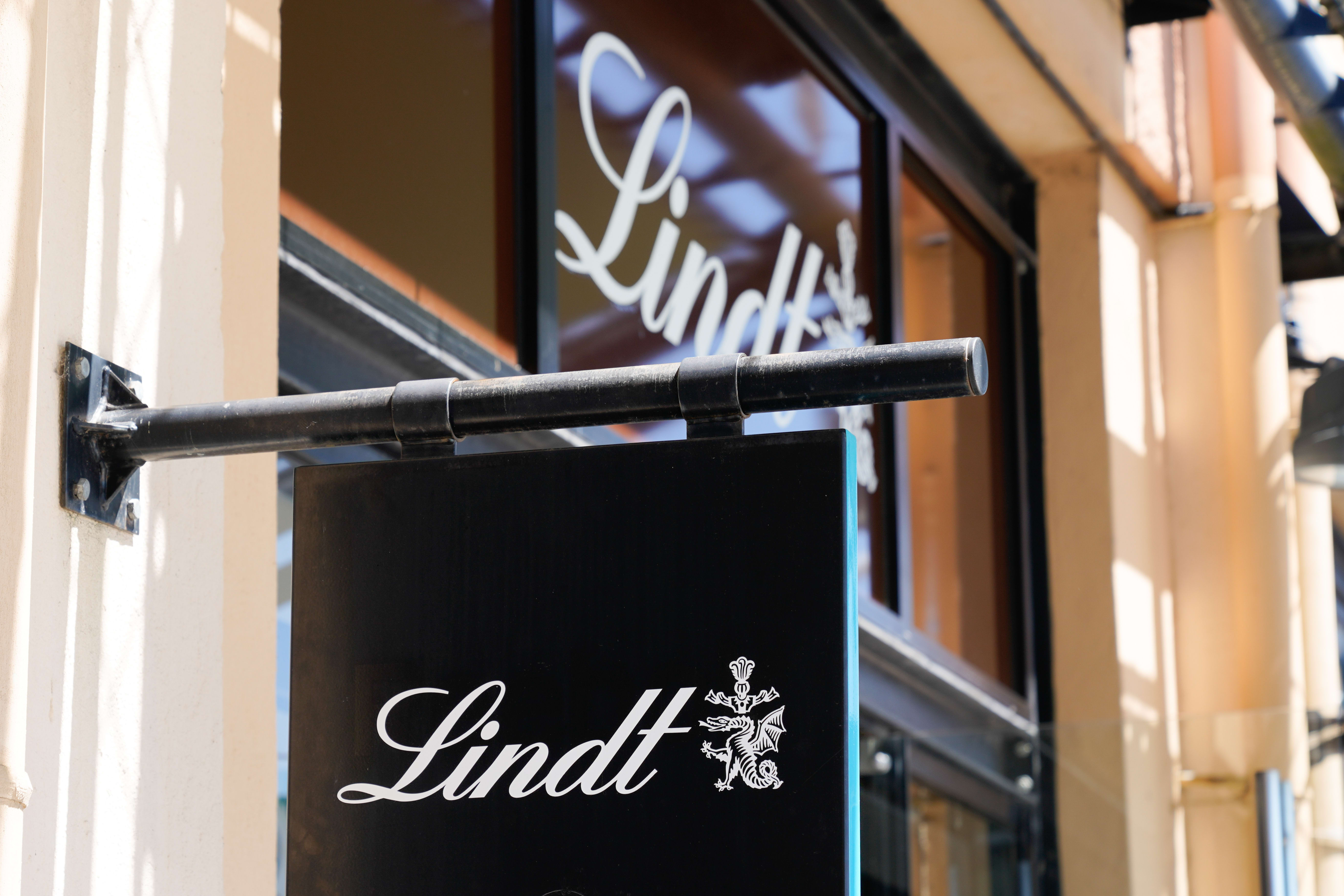
Yukinori Mizumoto, General Manager, Global Procurement Department, Nitto Denko Corporation
Founded in 1918, Nitto Denko designs, manufactures, and sells high-performance materials such as films and tapes used in the electronics, automotive, and healthcare industries. The company’s materials are also found in everyday products like optical films for laptops and smartphones, double-sided tapes, and vacuum cleaner filters.
With 89 subsidiaries worldwide, Nitto Denko derives 80% of its revenue and 40% of its procurement expenditures from international markets. In 2023, the company implemented EcoVadis Ratings to push forward a more sustainable supply chain. Yukinori Mizumoto, General Manager of the Global Procurement Department, shared the company’s sustainable procurement strategies at EcoVadis World Tour Japan 2024, held on October 25, 2024.
Achieving Its Vision of Becoming a Leader in Sustainable Practices by 2030
In 2023, Nitto Denko set a vision to become an "indispensable leader in sustainable practices" by 2030. To achieve this, the global procurement department established three key goals:
- Transition 30% or more of petroleum-based raw materials to sustainable alternatives by 2030
- Reduce Scope 3 greenhouse gas emissions by 25% (compared to 2022)
- Build, globally implement, and enhance a sustainable procurement system
“Strengthening the sustainability of our supply chain is essential to achieving this vision,” Mizumoto said, underscoring the company’s commitment.

Working with EcoVadis to Overcome Limitations in Sustainability Assessments
In 2016, the company established CSR procurement guidelines and began assessing its sustainability among domestic suppliers. Initially focused on direct materials, these assessments covered over 90% of domestic partners by 2021. In 2022, the company also introduced on-site audits based on Responsible Business Alliance (RBA) standards.
However, by 2022, Nitto Denko faced growing demands from customers and internal audit departments to expand its efforts internationally. “Keeping up with trends and updating standards was critical, but we realized the limitations of self-management. Relying on emails and spreadsheets for management was also burdensome, leaving insufficient resources for improvement,” Mizumoto explained. To address these challenges, the company began working with EcoVadis in 2023, enabling a focused approach to improving their score.
Company-Wide Efforts Enable Comprehensive Implementation
After Nitto Denko began utilizing EcoVadis in October 2023, the company built a policy and implementation structure. The goal was to hold a briefing session in China, a region with significant customer demand, by December. The company formulated its implementation plan after discussions with executives from various business units and overseas sites. This collaborative approach allowed for swift data collection and supplier outreach, laying the groundwork for the briefing session.
“We had many things to do, such as prepare data, travel for the briefings, and negotiate face-to-face. It was impossible to handle all these tasks in such a short amount of time within the limited resources of the global procurement department alone,” Mizumoto noted, emphasizing the necessity of company-wide cooperation to achieve the company’s 2030 vision.
Subsequently, they held briefing sessions across Japan, Europe, North America, and South Asia. A system was put in place so that the implementation team, supported by appointed leaders for each area, managed execution in the regional factories. The company also assigned dedicated procurement personnel to each factory, creating a support system where suppliers could easily seek guidance.
Localized Approaches Drive Higher Participation Rates
Recognizing that the level of understanding and engagement with sustainability assessments vary by region, Nitto Denko adopted localized strategies. In Europe, the company used videos to communicate its vision and foster collaboration with suppliers. In China, repeated visits and direct dialogue with local suppliers helped build trust and emphasized the necessity of undergoing the assessment from a business perspective.
As of October 2024, approximately 200 of 500 targeted suppliers had completed the assessment, with another 200 in progress. 92 suppliers declined to participate. By the end of the fiscal year, four of the major regions excluding South Asia are expected to have completed assessment scores.
Regionally, China and Europe achieved participation rates of nearly 50%, while Japan led with 60%. Reflecting on the success in China, Mizumoto said, “By repeatedly visiting local
sites and engaging directly with presidents and executives, we built trust and demonstrated that the sustainability assessment is vital for continued business. Other key things we did was explaining global trends and the tightening standards of multinational corporations, supported by specific examples.”
Utilizing the EcoVadis platform to share competitors’ assessment progress further motivated suppliers to participate.

The Four Key Areas of the Company's Engagement Strategy
Mizumoto identified four key areas of their engagement strategy:
- Extensively communicating the company’s sustainable procurement policy
- Ensuring procurement personnel who regularly interact with suppliers explain the policy
- Centralizing communications through the implementation team
- Building consensus between upper management of both parties
These multi-layered approaches strengthened engagement. Mizumoto also noted, “Having our own score enhances our credibility with suppliers and fosters closer relationships.” While regional and individual differences in implementation remain hurdles, there is also a need for flexible approaches tailored to specific circumstances.
Moving forward, the company will focus on expanding the number of target suppliers, increasing participation rates, and improving low scores. “Over several years, we will optimize the assessment cycle and achieve our vision of becoming an ‘indispensable leader in sustainable practices’ by 2030,” Mizumoto concluded, expressing his determination for future initiatives.
About the Author
Follow on Twitter Follow on Linkedin Visit Website More Content by EcoVadis EN























